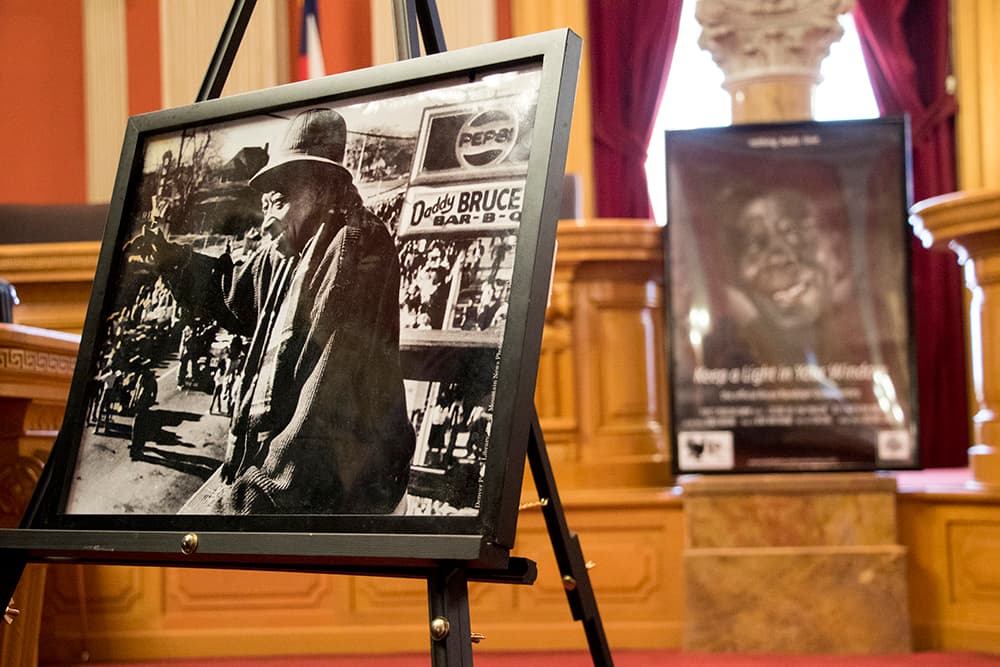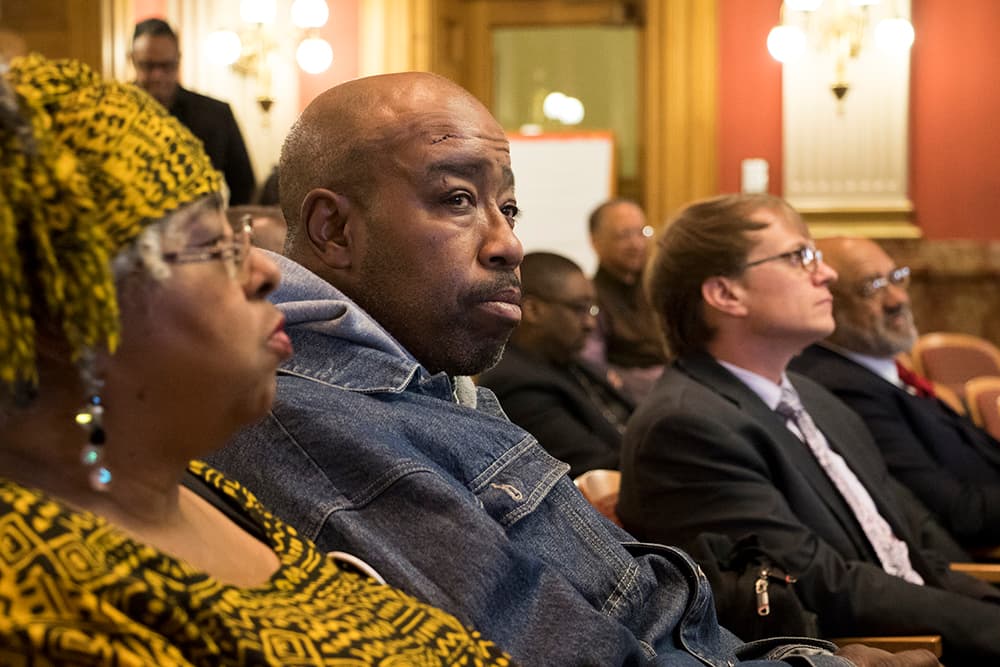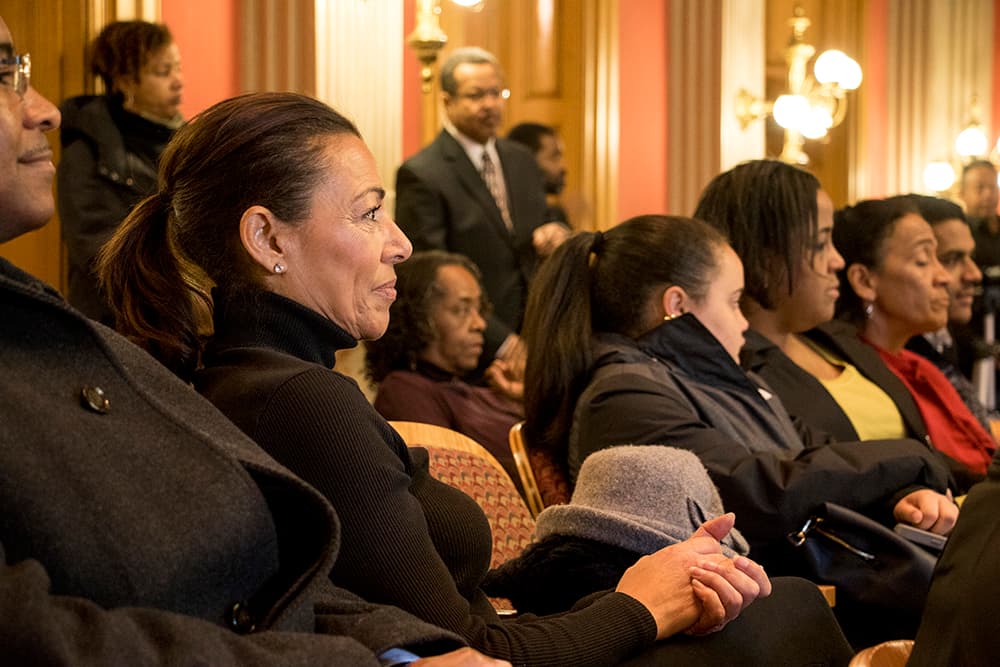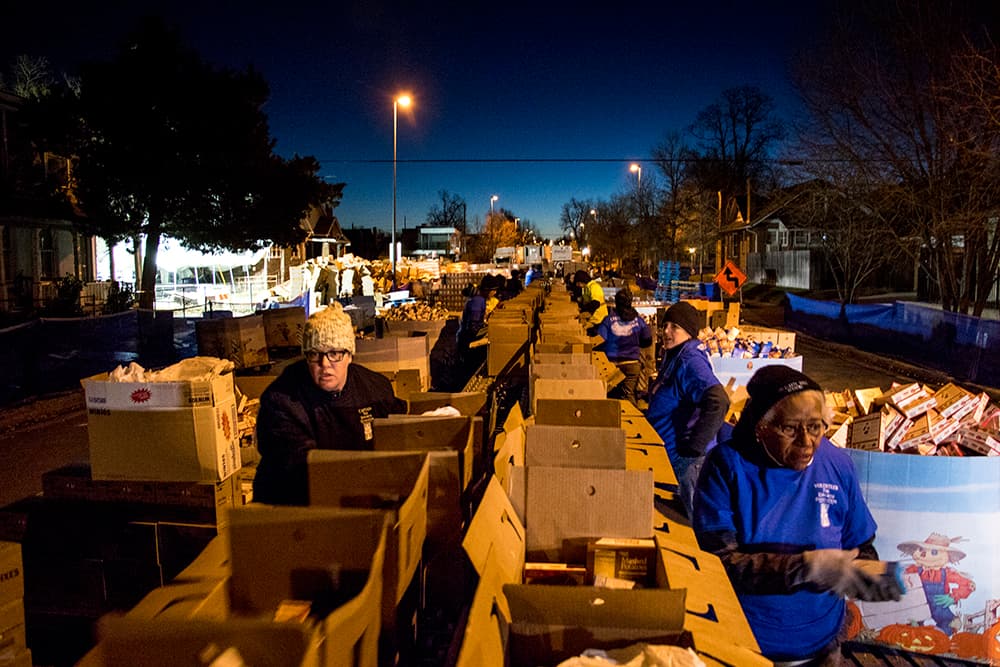
On Tuesday morning, Rep. Paul Rosenthal and the Colorado Black Caucus spent time honoring the legacy of Daddy Bruce Randolph.
The north Denver stalwart, who has both a school and a road named for him, became famous for his charitable efforts that have been carried on since his death in 1994.
While Bruce Randolph Sr. is often associated with free feasts for Thanksgiving, a tradition that continues to this day, his great-nephew, Ray Williams, said Randolph was always at work for his community.
"He fed people every day," Williams said. And he should know: Williams said he worked in Randolph's kitchen for more than a decade as they fed everyone who came into their restaurant at the corner of Gilpin Street and what is now Bruce Randolph Avenue.
Randolph has been recognized again and again through the years, Williams said, and maybe it's not that big a deal that his great-uncle is being recognized today. Then again, "This is cool that they’re still doing it," Williams continued, "because he did a lot."

The fact that Randolph's service has been continually remembered through the years might be more important now than ever. Tamara Banks, an international journalist who's begun working on a documentary on gentrification since protests broke out against Ink! Coffee, said remembering a neighborhood's legacy is the key to respectful development down the line.
"The reason that so many people want to come to Denver and to move into these beautiful neighborhoods is because of the culture and because of the legacy," she said. "We don’t want to forget."

Indeed, Elgin Cahill, who's been working on his own documentary about Daddy Bruce for years, said he's interviewed kids at Bruce Randolph School who have no idea who the man was.
"They're a part of his legacy now," Cahill said. Representatives addressing the room thanked him and executive producer Ron Wooding for producing a film that can be used to educate newcomers for years to come.
And recognized or not, Cahill said, Randolph's charity has long set a chain of events in motion that won't soon fade.

"We found six or seven restaurant owners who said they moved to Denver with little or nothing," he said of his research for the film. "They all went on to open restaurants and open their doors to the less fortunate."
With members of the community actively continuing a tradition of service and his film set to debut publicly later this year, Cahill said he hopes Randolph will inspire charity and goodwill for generations to come.
"Bruce Randolph Sr. was a rare individual who's passion and persistence still has a positive influence on Colorado," Rep. Leslie Herod announced later to the full House of Representatives. Herod's district includes the Cole neighborhood where Randolph's business once stood. "We, the members of the Colorado House of Representatives, are grateful for the Randolph family and their many contributions to their community."












